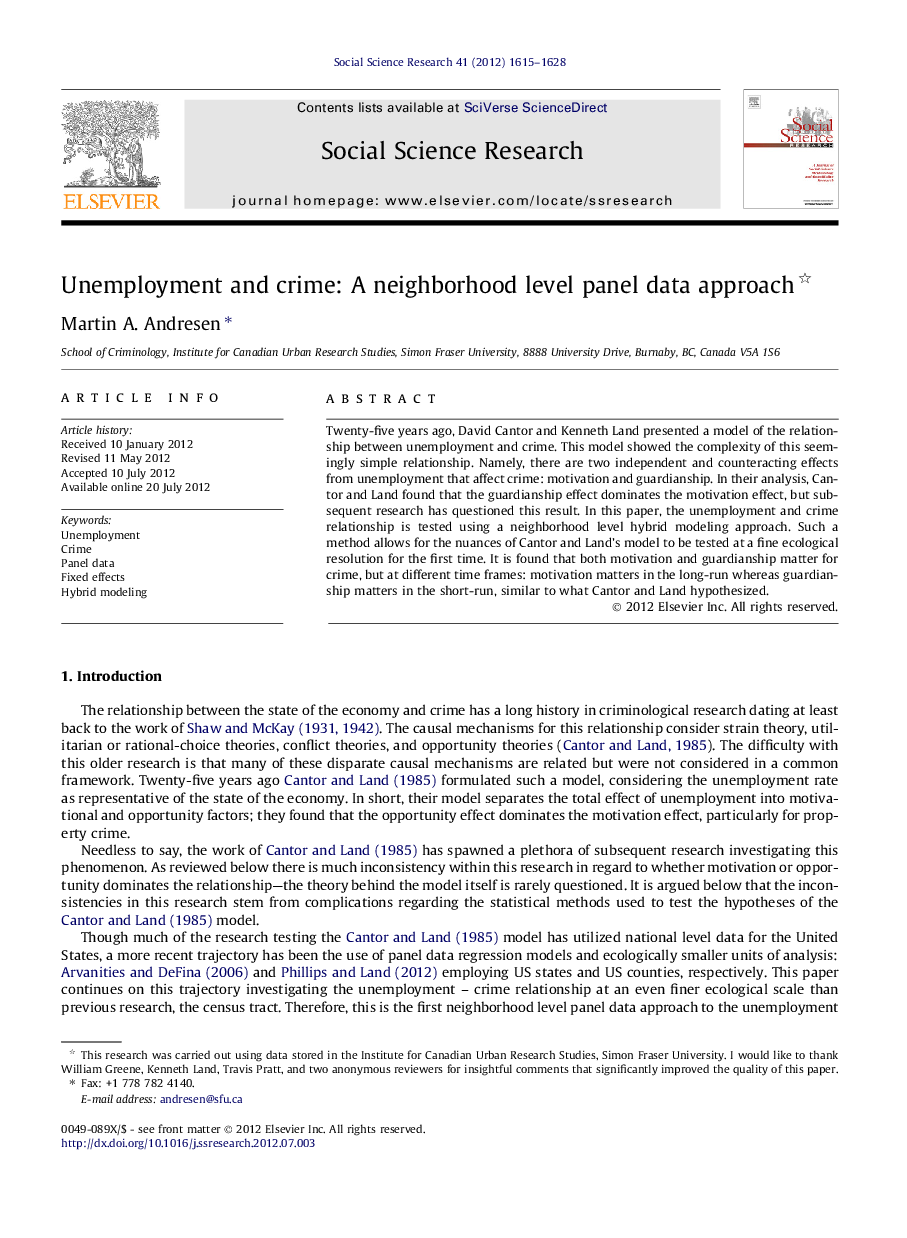| Article ID | Journal | Published Year | Pages | File Type |
|---|---|---|---|---|
| 955865 | Social Science Research | 2012 | 14 Pages |
Twenty-five years ago, David Cantor and Kenneth Land presented a model of the relationship between unemployment and crime. This model showed the complexity of this seemingly simple relationship. Namely, there are two independent and counteracting effects from unemployment that affect crime: motivation and guardianship. In their analysis, Cantor and Land found that the guardianship effect dominates the motivation effect, but subsequent research has questioned this result. In this paper, the unemployment and crime relationship is tested using a neighborhood level hybrid modeling approach. Such a method allows for the nuances of Cantor and Land’s model to be tested at a fine ecological resolution for the first time. It is found that both motivation and guardianship matter for crime, but at different time frames: motivation matters in the long-run whereas guardianship matters in the short-run, similar to what Cantor and Land hypothesized.
► We examine the relationship between unemployment and crime. ► We use neighborhood-level data and hybrid regression methods. ► A negative relationship is found in the short-run. ► A positive relationship is found in the long-run. ► Strong support is found for the Cantor and Land (1985) model.
